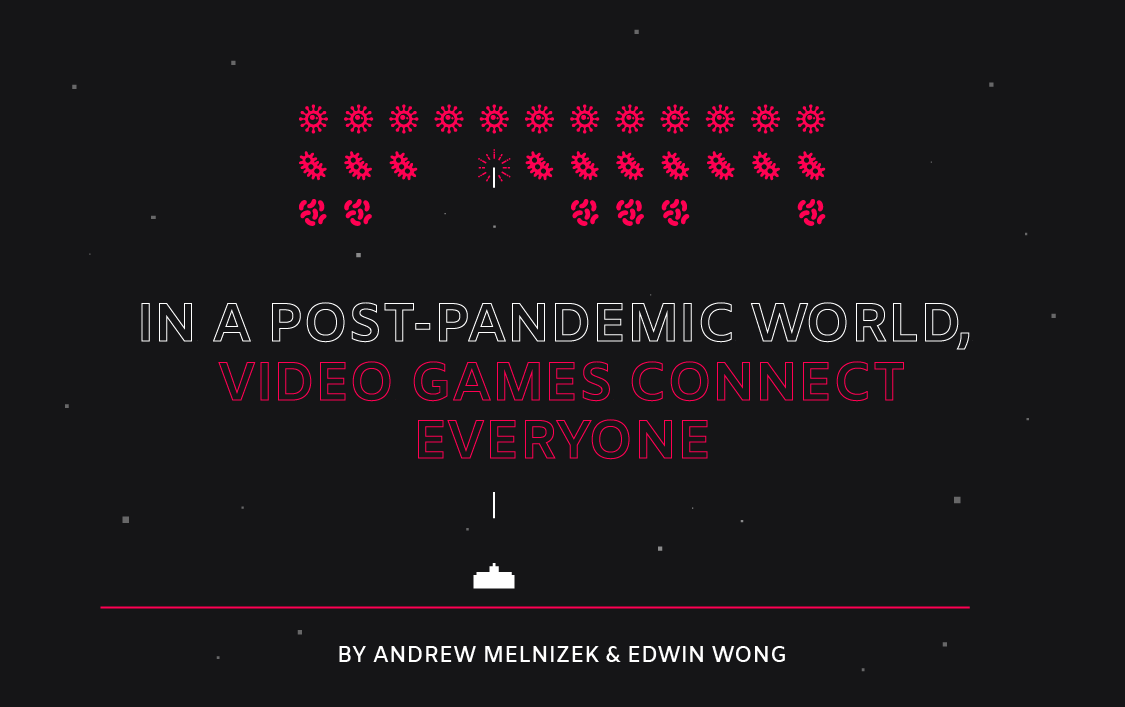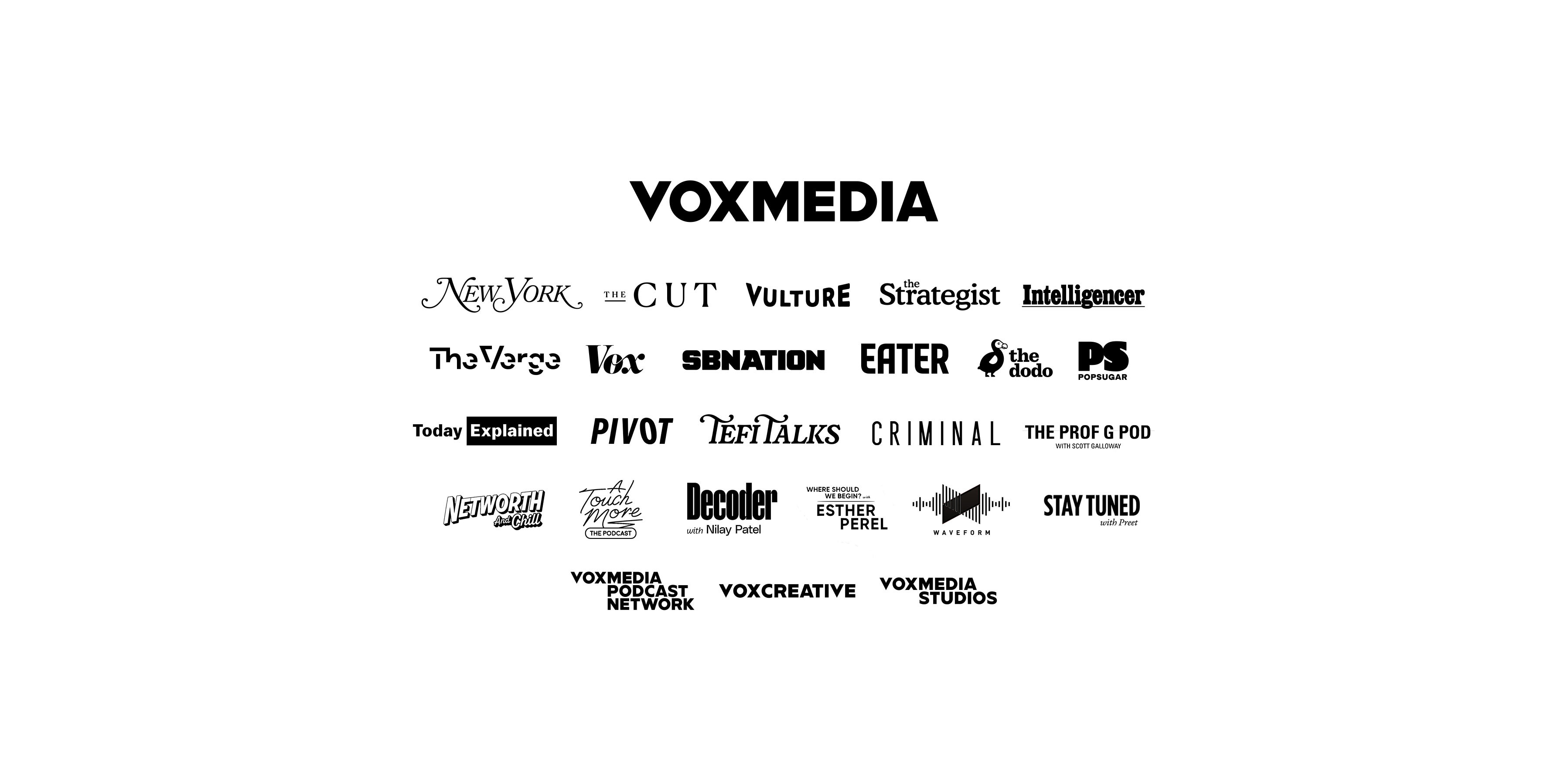Time spent on video games has increased in the past year by 14% to an average of eight-and-a-half hours per week, according to the State of Online Gaming 2021, a report commissioned by Limelight Networks, Inc. That’s no surprise, given the impact of the pandemic and our months of isolation. Even before lockdown, the world of gaming was expanding, meeting our needs for connection, competition, and mental stimulation. But while we were stuck at home, gaming didn’t just help us pass the time — it helped us build and maintain relationships and an authentic sense of community. Now, as we begin our transition back to normal life, these connections will continue to grow stronger — not just through our screens, but as real, meaningful parts of our everyday lives.
As the pandemic made clear, gaming is no longer just a form of entertainment. Over the past decade, Polygon has grown with its passionate audience of gamers, and is now ready to help shift the broader conversation around how we connect with gaming and entertainment culture. Vox Media and DB5 teamed up to uncover some impactful research, including:
- GAMING: MUCH MORE THAN ESCAPISM
- GAMING: MULTI-GENERATIONAL APPEAL
- GAMING: AN INFLUENTIAL GATEWAY TO MEDIA AND CULTURE
- GAMING: PART OF OUR POST-PANDEMIC WORLD
- POLYGON: POISED TO GROW WITH GAMING
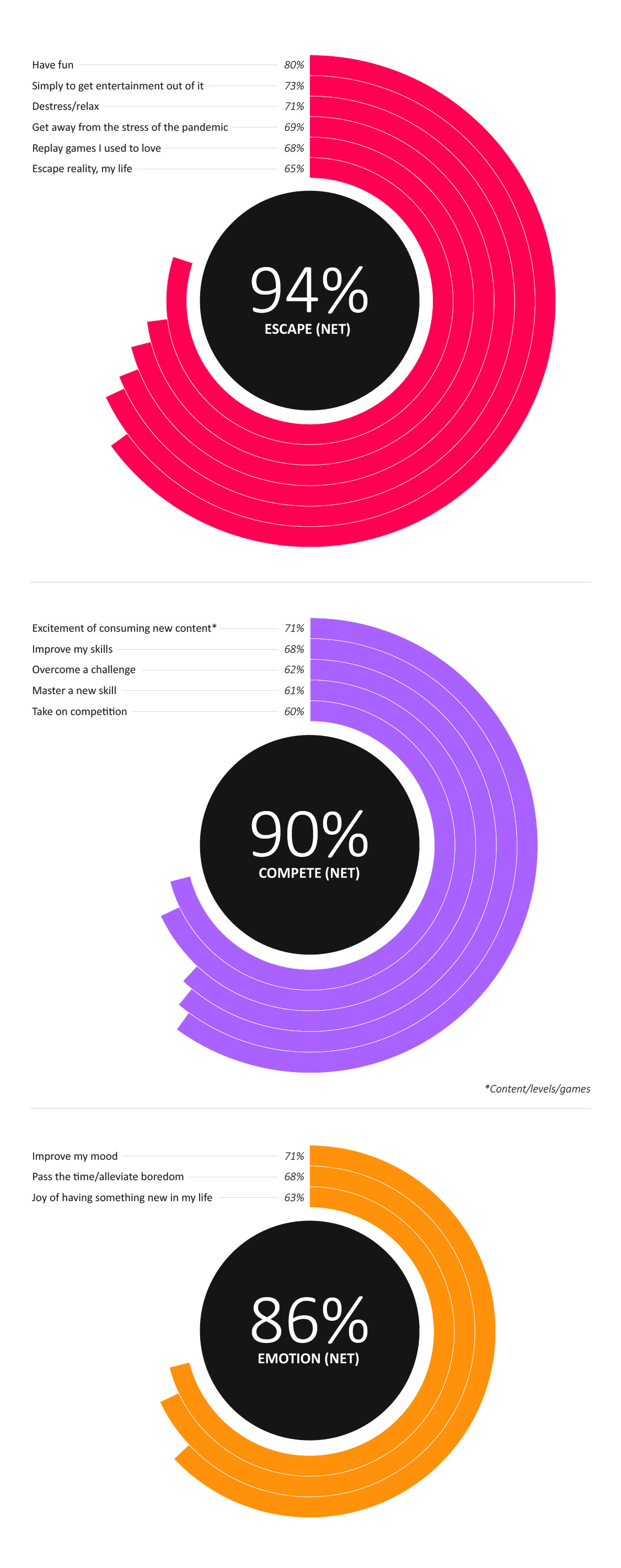
Most people who love gaming have other passions: 54% of respondents said they also watch TV and movies; 49% listen to music; 40% exercise; and 33% spend time with family or friends. Gaming is a unique hobby in that it can combine all of the above into one activity.
For the most passionate, gaming isn’t just a hobby — it’s a major part of their identity and helps shape how they view the world. This sense of purpose inspires more than half of gamers to create their own content.
As gaming continues to evolve, it becomes a part of our social fabric. Video gaming companies understand this, and — in preparation for our post-pandemic world— have begun making enhancements to their services, platforms, and communities. As a result, games can also be safe spaces for discussions around more serious topics like identity, mental health, and family issues. Even after the pandemic, games will continue to serve this valuable purpose.

GAMING: MULTI-GENERATIONAL APPEAL
In the past, marketers have narrowly targeted and defined gamers without recognizing the true diversity of the audience. For the past decade, gamers have skewed older — and during lockdown, gaming became a popular way for parents to bond with their kids. A recent AARP survey found that the number of adults over 50 who play videogames grew to 50.6 million in 2019, from 40.2 million in 2016 — and more women over 50 play than men. A real-life example captures this growing trend:
“I gave video games a try during the pandemic to connect with my ten year olds,” said a 52- year-old father. “With Covid restrictions, going out to bond over movies and dinner were of the past. My boys were more than happy to explain how to play Fortnite. Now breakfasts are filled with chatter about the latest update, favorite YouTubers, sharing tutorials, and laughing at how I got here. It’s precious moments created by gaming.”
In fact, a high proportion of gamers self-identify as “hardcore” consistently across all age groups:
- 18-23 years of age: 62%
- 24-39 years of age: 56%
- 40-54 years of age: 49%
We found little to no differences in age among gamers who contributed to open-source games like Roblox, listened to gaming discussions on Clubhouse, watched events like the Game Awards, or watched “how-to” video tutorials on YouTube or Twitch. This consistency shows that gaming defies generational boundaries and has become a larger part of culture at large.
GAMING: AN INFLUENTIAL GATEWAY TO MEDIA AND CULTURE
Today, the world of gaming stretches far beyond any console, phone, or computer. Tim Sweeney, founder of Epic Games, describes Fortnite as “a phenomenon that transcends gaming.” His aim is to build something that resembles a science fiction “metaverse… a virtual world for socializing and entertainment.”
People are of course most interested in playing the games themselves (72%), but also see the appeal in watching (55%) or reading (38%) gaming content. 84% of our audience specifically visits Polygon for gaming news and culture, followed by 70% that seek reviews and 56% for videos. A whopping 78% of Polygon’s audience is regularly searching for gaming guides or tips.
While gearing up to play a game, Polygon visitors regularly engage with other forms of gaming and entertainment channels: 30% coordinate with friends on Discord, 23% watch Twitch, and 20% look for game guides and walk-throughs.
Our data confirms that gaming impacts what we are watching across many different platforms. According to new stats from YouTube, 100 billion hours of gaming content are watched on YouTube. Most of the views come from original content creators, not the marketing videos made by developers or publishers. In fact, 1 in 4 gamers believe video game content creators rival the biggest Hollywood stars. Audiences love crossovers with mainstream IP like NBA players, Marvel superheroes, or even superstars like Travis Scott appearing inside Fortnite. It’s even more evidence of how games have dramatically changed consumer behaviors far beyond their virtual worlds.
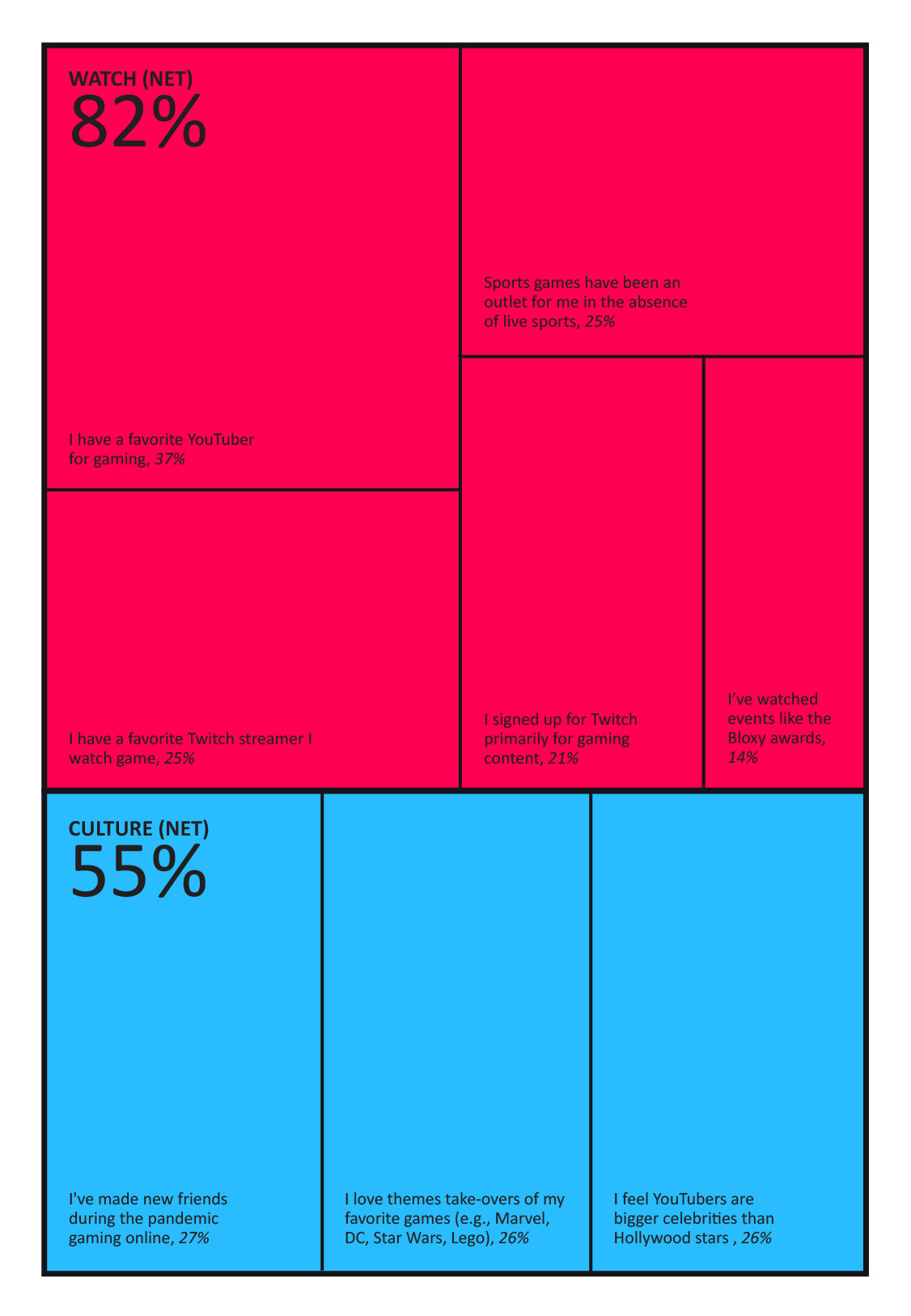
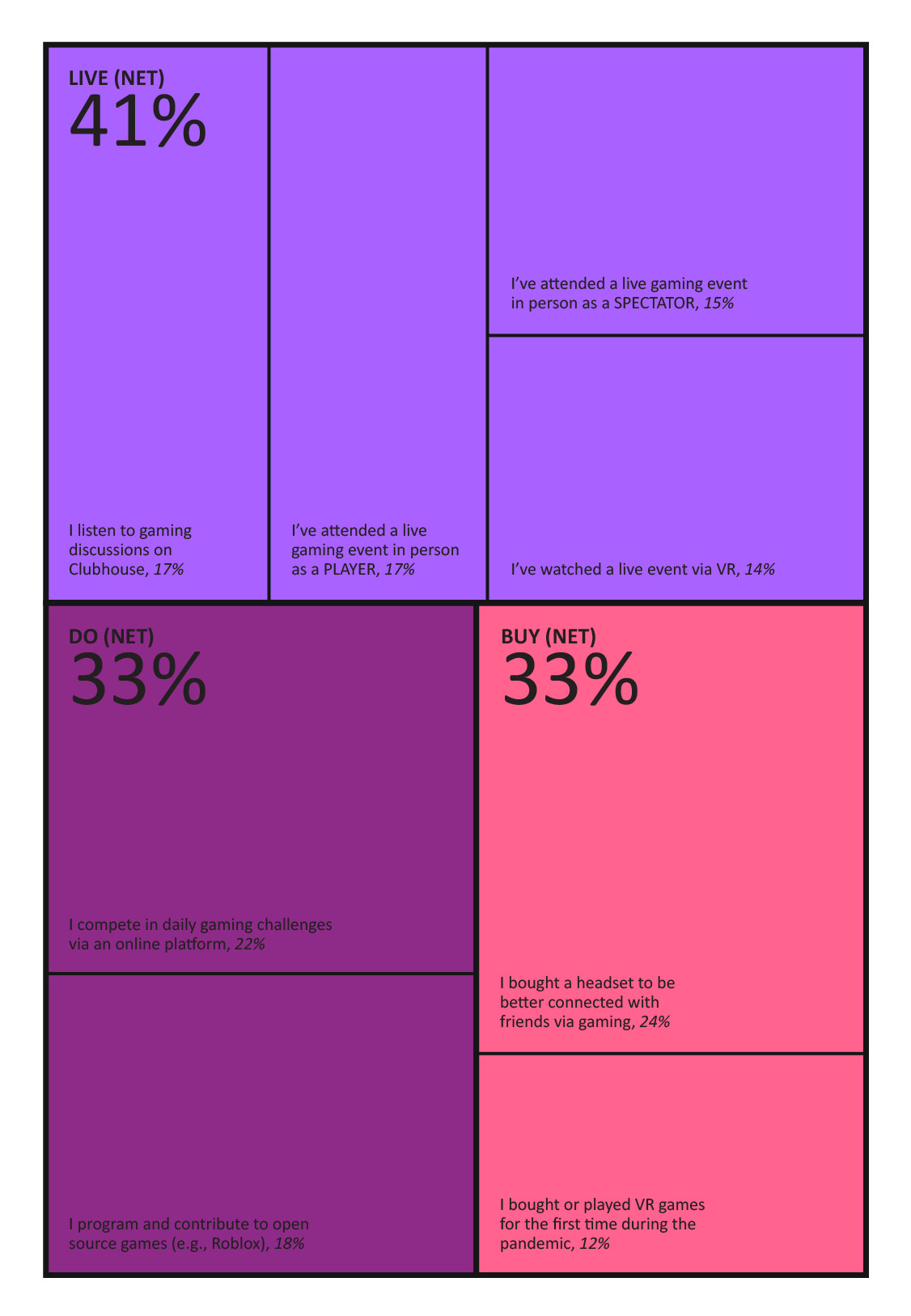
GAMING: PART OF OUR POST-PANDEMIC WORLD
Even as consumers begin to spend less time at home, 80% believe their gaming habits will stay consistent. In fact, 38% say they will actually increase their time spent gaming post-pandemic.
It’s easy to see how gaming leads to new behavior — including spending. 67% say they have tried something new (like learning the guitar) because of a video game, and a whopping 69% claim to have bought a product or service they saw featured in a video game — whether that be gaming-related accessories (71%) or clothes (54%), music (49%), drinks (41%), food (37%), and even furniture (26%).
As gamers spend more and more time immersed in gaming worlds, there is tremendous opportunity for brands to engage with them.
POLYGON: POISED TO GROW WITH GAMING AS MAINSTREAM ENTERTAINMENT
As the gaming world continues to expand and evolve, sites like Polygon that cover the gaming community more expansively than just tips and reviews will attract a strong influencer audience. Now more than ever, we understand the passion our audience feels for gaming and will continue to share in that experience right along with them.

Bastion db5 is a consumer insights and strategy consultancy specializing in qualitative and quantitative research, brand strategy, innovation and communications. Helping global businesses and disruptive startups empathize with their targets so they grow, Bastion db5 conducts consumer research in North and South America, APAC, Europe, Africa, and the Middle East. They help discover new paths to transform and grow by providing the right data (big or otherwise) and insights that are the keys to transforming brands and businesses. www.bastiondb5.com.
Andrew Melnizek, Edwin Wong, and Margo Arton contributed to this report.
